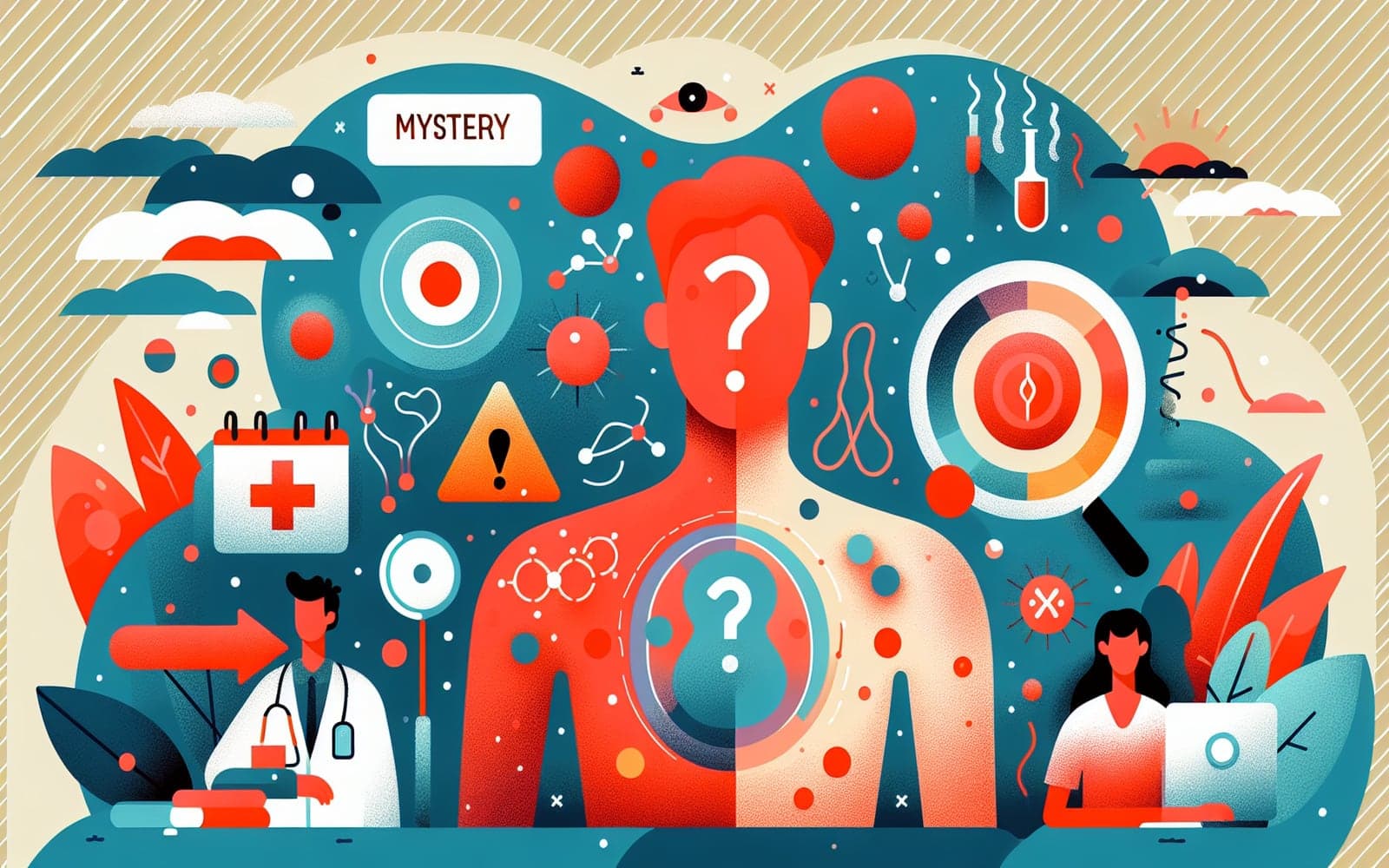Why Does Your Skin Turn Red? The Mystery of Carcinoid Syndrome Flushing
Published: Oct 13, 2023

Medically reviewed by Benjamin Seth Martinez | MD, Statpearls - Director of Clinical Content on October 13th, 2023.
Flushing is a key symptom of carcinoid syndrome, affecting the face, neck, and chest. Discover why it happens and what it means.
Contents
The Flushing Phenomenon
Flushing in carcinoid syndrome is characterized by sudden redness in the face, neck, and upper chest, sometimes lasting up to 30 minutes. It can bring a mild burning sensation and changes in blood pressure and heart rate.
Triggers of Flushing
Flushing episodes can occur spontaneously but are often triggered by certain actions such as eating, drinking alcohol, or stress. These triggers can cause the body's blood vessels to widen, leading to the red, warm sensation.

Understanding the Underlying Chemistry
While serotonin is a key player in carcinoid syndrome, it doesn't cause flushing. Other substances like bradykinins, prostaglandins, and histamine are believed to be the culprits behind the flushing episodes.
Frequently Asked Questions
Flushing is the main symptom.
Triggers include eating and stress.
No, other chemicals like histamine cause it.
It can last from seconds to 30 minutes.
Key Takeaways
Flushing is a key signal of carcinoid syndrome, helping in its identification.
Talk to Doctronic about how to manage flushing symptoms today!Related Articles
References
Grahame-Smith DG. What is the cause of the carcinoid flush? Gut 1987; 28:1413.
This article has been reviewed for accuracy by one of the licensed medical doctors working for Doctronic. Always discuss health information with your healthcare provider.

